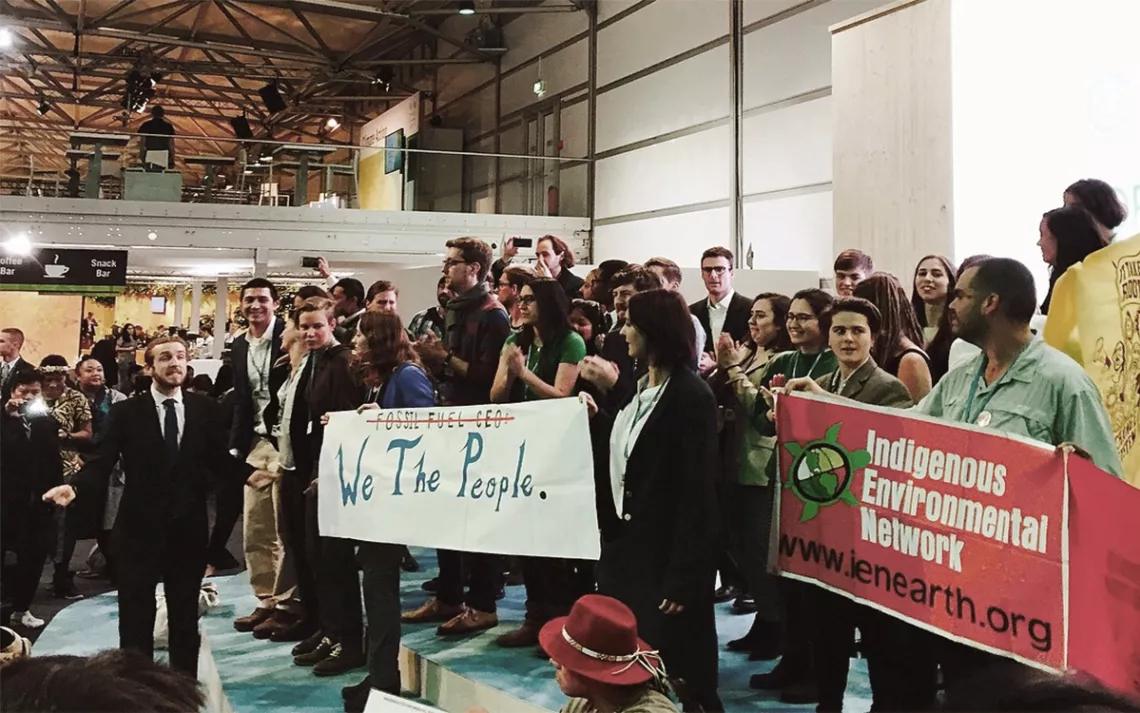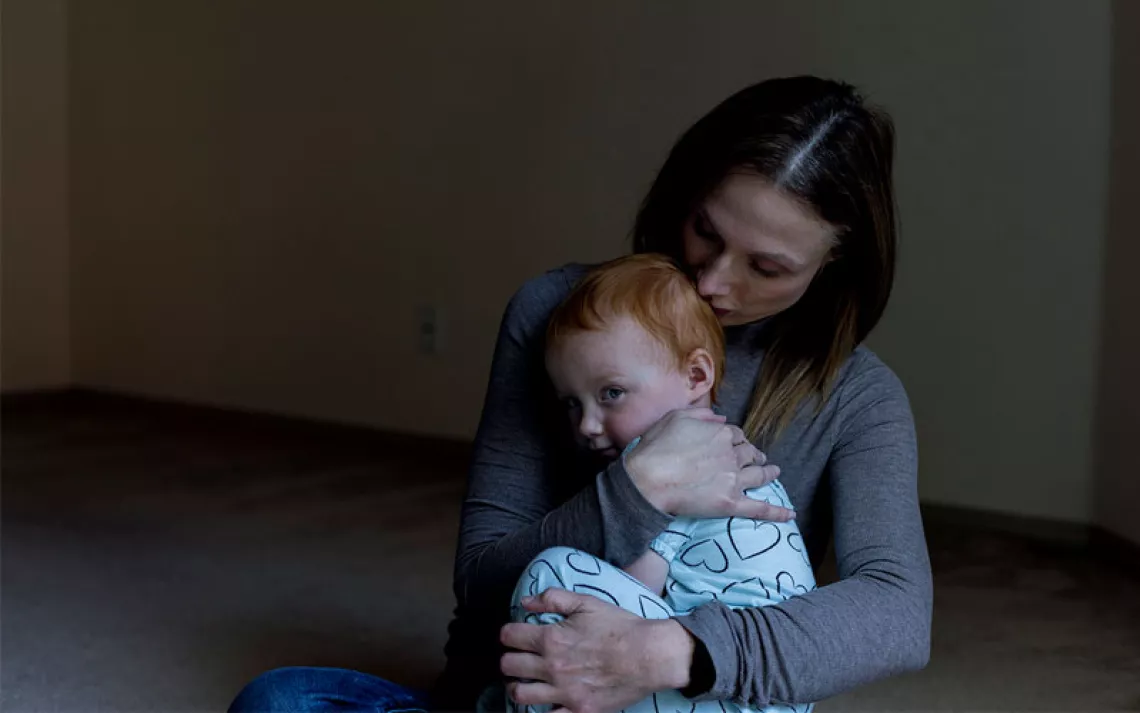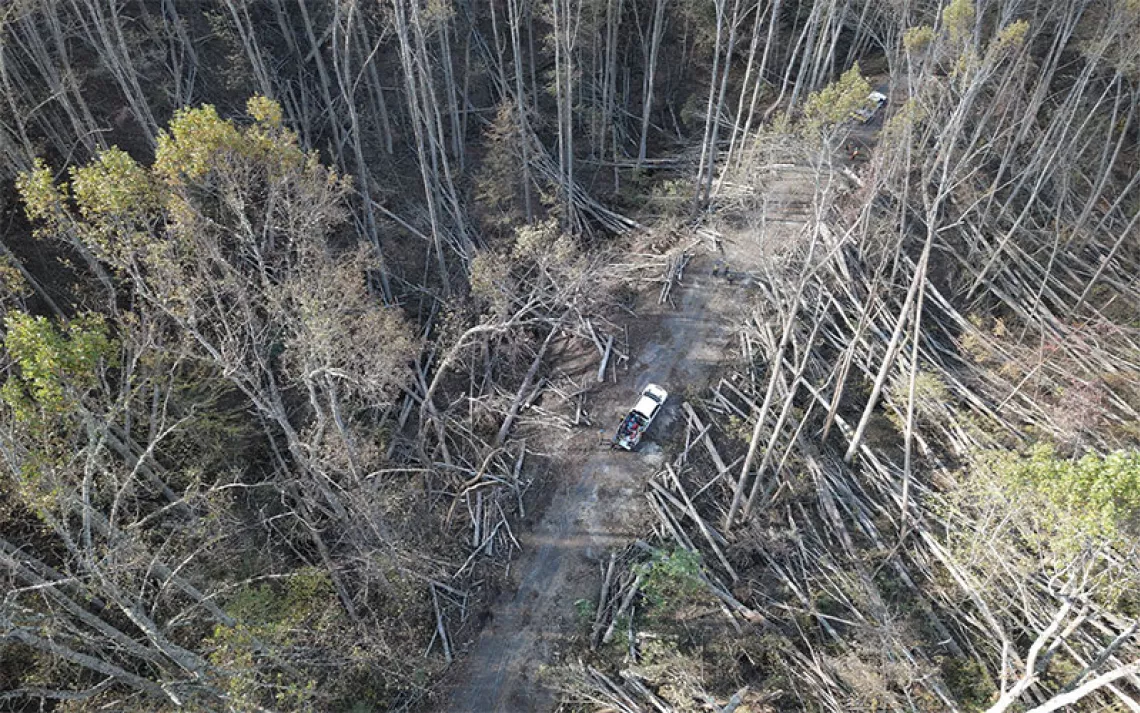Constance Okollet’s COP23 Message: Climate Change Is Reality in Uganda
The head of the Osukuru United Women Network wants actions not words

Protesters at the Trump administration's presentation at the UN Climate Conference in Bonn, Germany. | Photo by Anthony Torres
Last June, I traveled to southeastern Uganda to write an article for Sierra about Constance Okollet, the head of the Osukuru United Women Network—a female-driven, grassroots organization that works to mobilize rural communities in the face of climate change.
I caught up with Okollet by phone this week while she is attending COP23, the UN Climate Conference in Bonn, Germany, where delegates from 195 countries are hammering out how to follow through on the Paris Agreement. The work is forging ahead despite President Trump’s announcement last June that the United States would withdraw from the agreement.
Okollet is at the conference to tell anyone who will listen that climate change is already a reality in her community. The normal cycle of rainy and dry seasons has been upended, making it almost impossible to time when to plant and harvest. Droughts and intense storms destroy the crops people rely on to feed their families. Torrential rains wreck the huts they live in, and their children go hungry. Without any surplus crops to sell in the market, parents don’t have the money to send their children to school.
Photo by Tracy MannBut while the people in Okollet’s community face enormous challenges, they are not victims. With the help of the Osukuru United Women Network, they are pooling their meagre savings to start small businesses, like poultry farms and tree nurseries, which can help buffer them from food insecurity when crops fail. They are educating themselves and each other about climate change and planting trees to help reduce flooding and erosion. They are diversifying their crops and planting small kitchen gardens that they can water by hand even in a drought.
But they need support. Okollet wants the money the United Nations has set aside for climate change mitigation to reach farmers in Osukuru. Small investments in basic agricultural technology would go a long way. Right now, most villagers in the region plant their crops with a handheld hoe, a slow and laborious process that takes too long. “With climate change, one hand with the hoe—things can’t work out well,” she explained. “You buy the plow, you plant quickly, you harvest quickly.” Speeding up the process with some machinery would mean farmers could take better advantage of good weather while it lasts.
Members of the Osukuru United Women Network are also hoping for some outside investment with which to grow their fledgling businesses and make them less susceptible to crippling setbacks. For example, many villagers who had pooled their resources to buy livestock lost the animals in a recent drought. Some accumulated capital would help them to recover faster from these kinds of calamities.
This is the message Okollet carries to Bonn, and that she repeats over and over as she participates in panels, gives interviews, and meets with other women from around the world who are leading adaption efforts in their communities. On Saturday, she took part in discussions led by the International Institute for the Environment and Development, and on Monday, she spoke at an event called "Women Leading Solutions on the Frontlines of Climate Change," organized by the Women’s Earth and Climate Action Network, International.
Meanwhile on Monday, the Trump administration’s delegation hosted its only presentation at the conference, titled “The Role of Cleaner and More Efficient Fossil Fuels and Nuclear Power in Climate Mitigation.” It included speakers from Peabody Energy and NuScale Power, a nuclear engineering firm. The presentation, which culminated with protesters bursting into song and the audience walking out en masse, was a stunning display of the disconnect between the Trump administration and top leadership in other countries, as well as what Okollet and others like her are experiencing on the ground across the globe.
Tracy Mann, the director of Climate Wise Women, is attending the conference with Okollet and other women on the frontlines of climate change. “You definitely hear people talking about the Trump administration, and their anger at his policies,” she says. But she pointed out that conference-goers are feeling impatient with the United Nations process, too. “It’s not moving at the pace needed to make the contribution to our resilience that it should be making,” she says. “It’s just not enough.”
“The time is going,” Okollet added. But she still believes in the power of telling her story.
“My goal for the COP is to keep talking, tell people about what is happening, and to get some funds to help my community.”
 The Magazine of The Sierra Club
The Magazine of The Sierra Club



